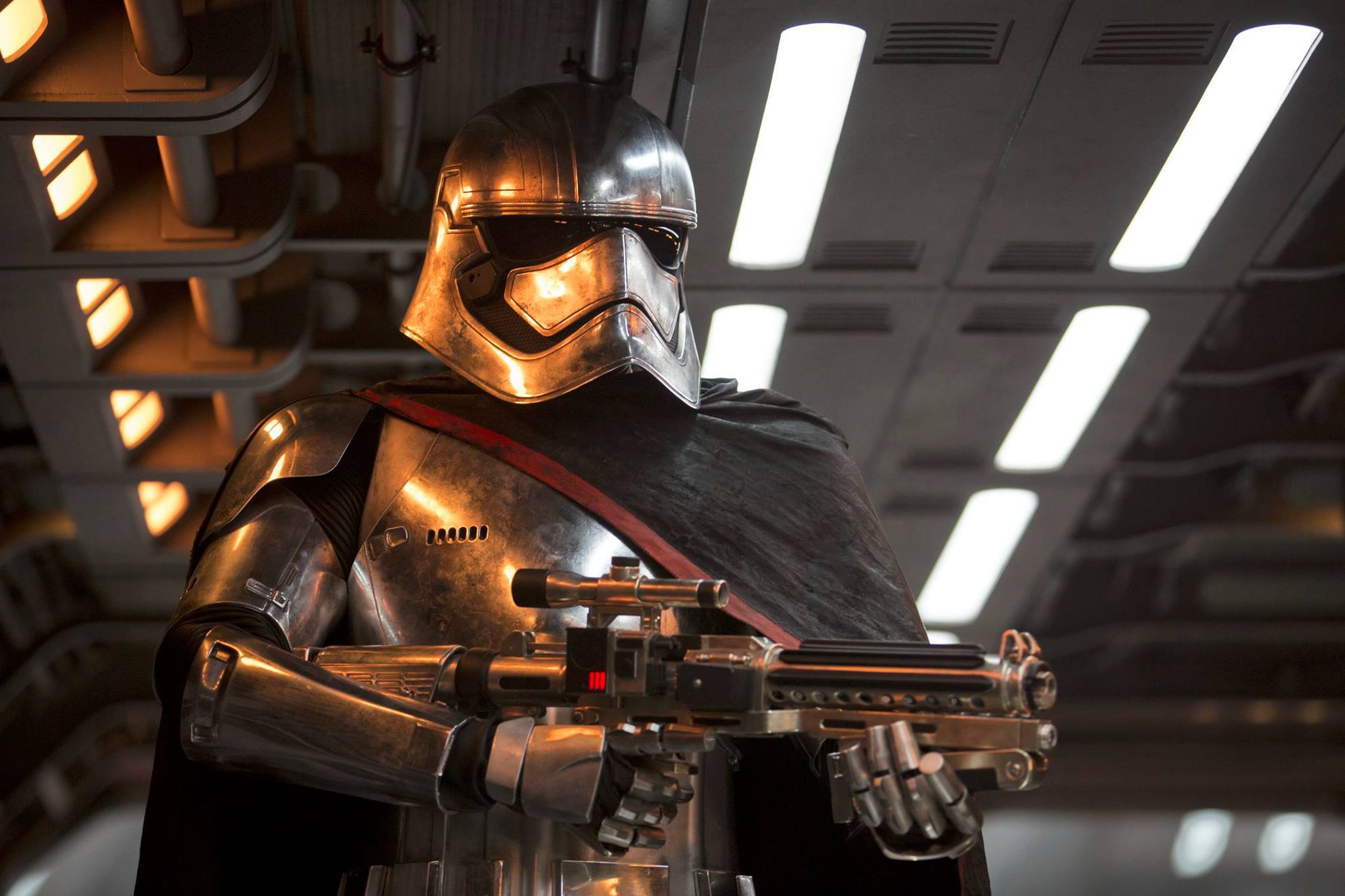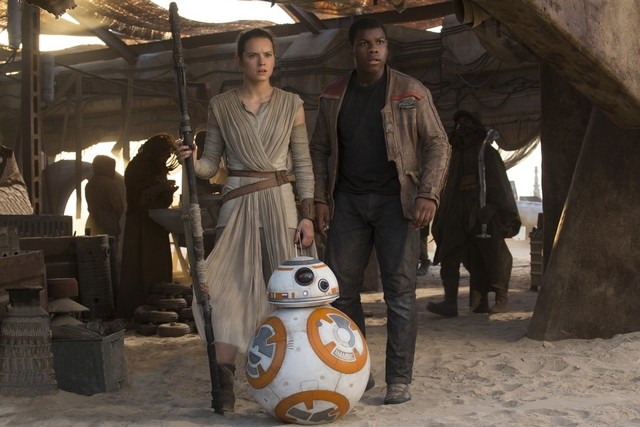As one of the stars of HBO’s smash-hit TV fantasy drama Game of Thrones, Gwendoline Christie is used to being part of a pop-culture phenomenon with a huge, extremely devoted – and demanding – fan base.
However, when she was cast in Star Wars: Episode VII – The Force Awakens, she realised that there was an even greater level of fan adulation and public scrutiny.
The first time she truly understood the power of Star Wars to move people was when she attended Comic-Con in San Diego to help promote the film.
Director J J Abrams wanted to give something back to the thousands of fans who had camped out to see the stars –including Christie (who plays villainous Captain Phasma) and Harrison Ford (Han Solo) – talk about the long-awaited new chapter in the smash-hit sci-fi saga. So he invited them to a secret Star Wars concert where the San Diego Symphony Orchestra played parts of the soundtrack while clips from the films were screened in the background.
“There were free lightsabers,” says Christie, with a smile. “I was escorted to the stage by Stormtroopers. There were the best fireworks I have ever seen. It was genuinely one of the best events I have ever been to.”
Afterwards, the British actress talked to Abrams. For her, the feeling in the room that July night in San Diego was more than hysteria or even euphoria – but she couldn’t quite put her finger on it.
“And then J J told me,” she says. “He said it was hope. And he’s right. This is what Star Wars inspires in people, a wonderful feeling of hope that connects us back to a place of simple happiness.”
Like so many of the newcomers to the long-running saga, 37-year-old Christie’s formative years were spent falling in love with, as she puts it, “these magical, special and exceptional films”.
It’s to Abrams’s credit that he has managed to draw on such deep reserves of goodwill and ally that with a cast and crew who feel a sense of responsibility towards telling the best story possible.
In keeping with the incredibly high levels of secrecy that have surrounded the film, Christie was giving little away about the role her character plays in the continuing Star Wars story.
“Phasma is the first female Star Wars villain, captain of the Stormtroopers and part of the Dark Side,” she says. “She has a blaster … and I think that’s all I can say about her story.” It’s not only being a part of this new Star Warsera that thrills her – it is also the character she is playing. “Here we have a female character who we judge on her choices,” she says. “It isn’t about her being stereotypically female, it is about her being a villain. So we form a relationship with her based on her actions rather than the way she looks in the flesh.”
Certainly the way Phasma looks on screen is striking, with her chrome-look Stormtrooper armour. But she is not, as Christie puts it, “conventionally female” – after all, the 6ft 3in actress is playing her role behind full armour and a helmet. This meant that Christie had to use all the classical training she received at drama school and on the stage to devise a physical language for Phasma.
“It was actually very exciting to do that,” she says. “You realise that acting isn’t all about facial expressions or the way you make your clothing look. Instead, every way you choose to move your body says something about the character, gives a message to the audience.”
Of course, Christie is no stranger to such restrictions imposed by wearing a suit of armour. In Game of Thrones, her character, Brienne of Tarth, is a knight constantly dressed in armour – so playing a role that is as much about the way she moves as how she speaks has become second nature.
Of course, the big difference between Phasma and Brienne of Tarth – or indeed Commander Lyme, her character in the recently released fourth film in The Hunger Games saga, Mockingjay, Part 2 – is that in Star Wars she’s very much a baddie.
“I really like villainy,” she says, with a laugh.
It is interesting that, after many years of playing classical theatre roles, this striking and endearing actor has forged a reputation as a star of three of the biggest fantasy/sci-fi franchises of all time.
“It was never a choice and I think the reason I was interested in Star Wars, Game of Thrones and The Hunger Games was the fact they’re all brilliant stories, rather than prescriptive genres,” she says.
“I do think there’s something about a strong aesthetic which is outside our usual frame of reference that can allow us to connect more strongly with the humanity of storylines,” she says. “And with Star Wars, it was so exciting to be part of something that means so much to me and other people.”

